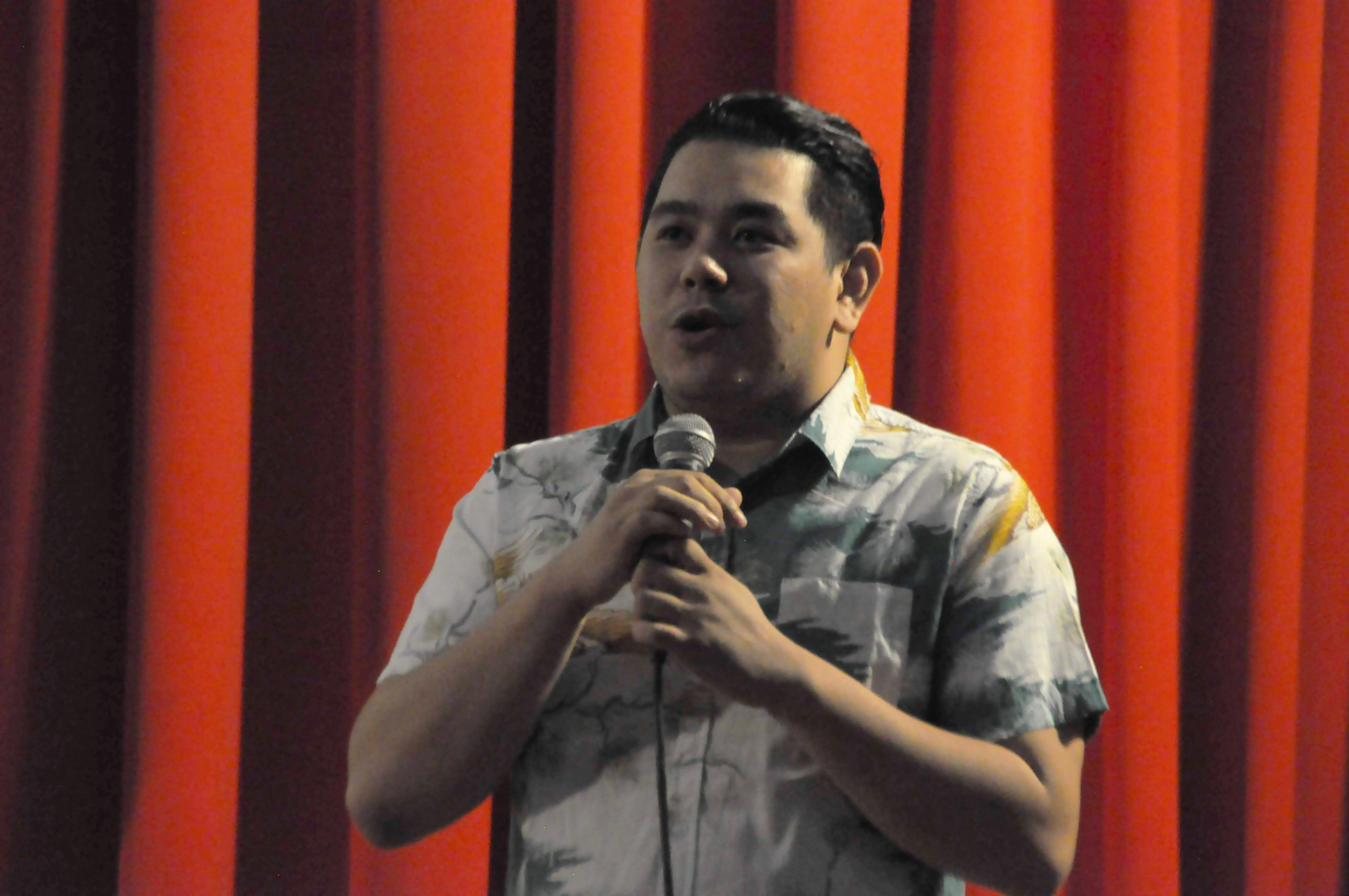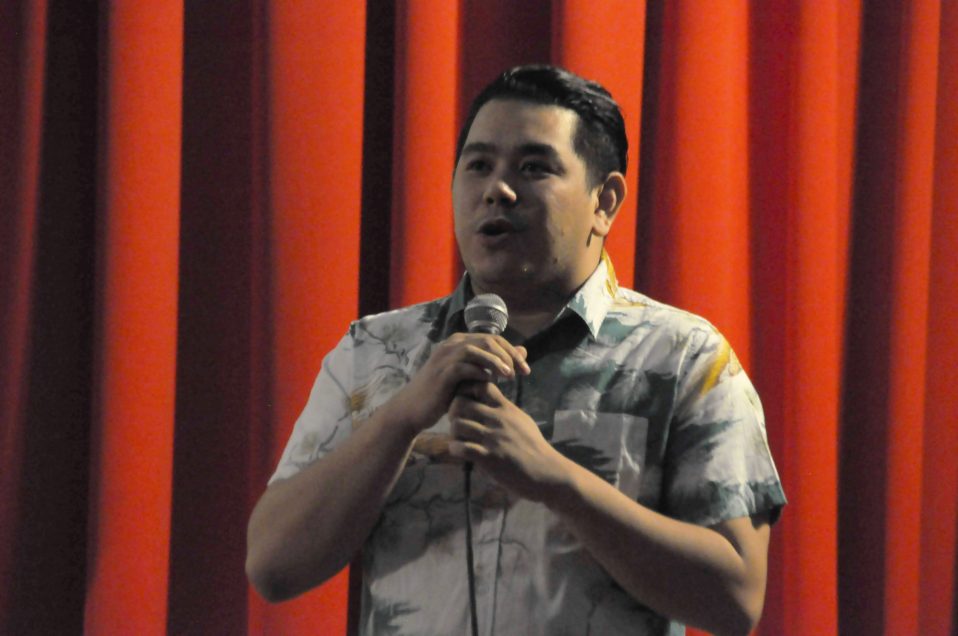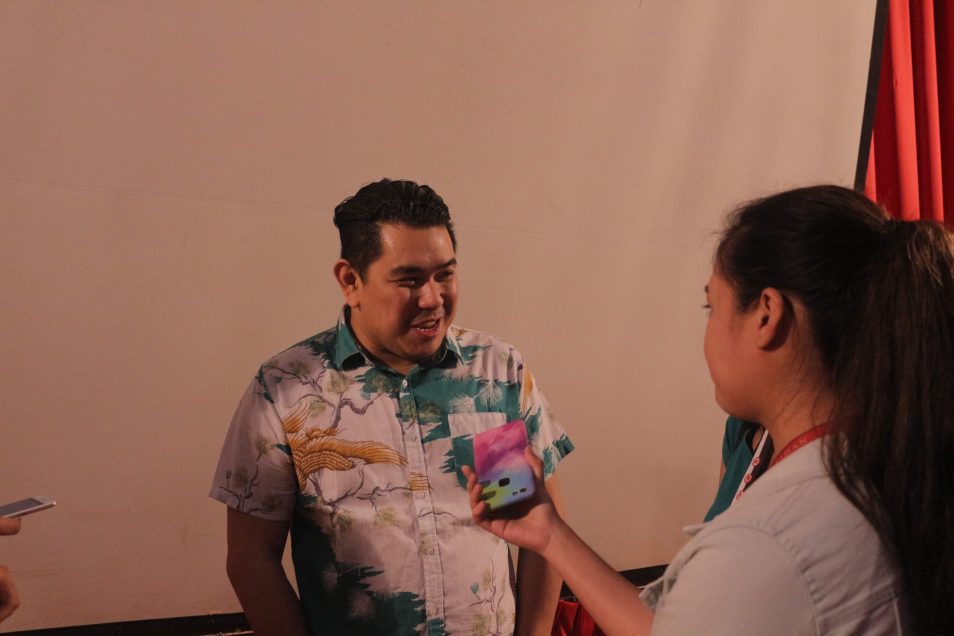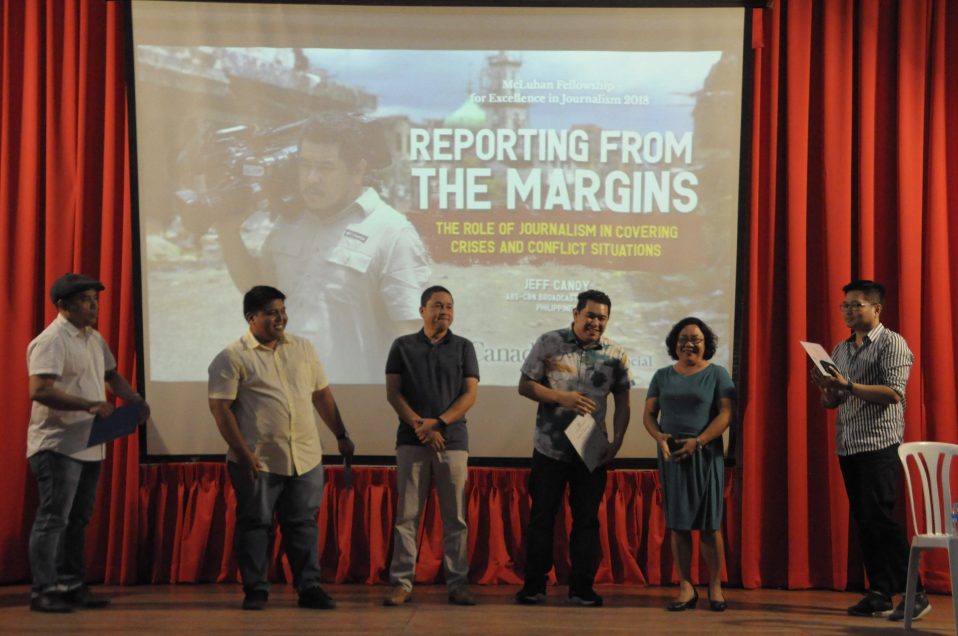
Verification equals journalism – McLuhan Fellow 2018
The discipline of verification is what sets the journalist apart from all kinds of bloggers in the digital age, said Jeff Canoy, ABS-CBN correspondent, during his lecture February 15 at the SU College of Mass Communication.

Canoy is the winner of the 2018 Marshall McLuhan Fellowship for Excellence in Journalism given by the Embassy of Canada to outstanding Filipino journalists to honor the memory of the Canadian media scholar and visionary.
Canoy said that the practice of journalism has been transformed because of social media, but the tenets of journalism remain unchanged.
“Like myself, I don’t consider myself a TV reporter anymore, but really more of a multimedia person. I have to edit, I have to shoot my own videos. So the job has been transformed; but the basic tenets of what journalism is remain.”
He pointed out that the spread of disinformation has become wider and faster due to social media, which threaten the journalism profession and at the same time empower people to send and receive information on their own.
“Sobrang powerful ninyo ngayon,” the speaker told some 200 students and faculty from several schools in Dumaguete.

“Today, anybody can be a journalist. If you have a phone and something happens outside, you can take a video of that and report what’s happening.
“But because you have that power, you must also remember that you have a responsibility to follow the process of being a journalist, and the first very important step that a journalist should take is verification.”
Canoy said journalism continues to be a vibrant industry. “I don’t agree that journalism is a dying industry. I think it is very much alive. We need more journalists, especially at this point when we have a lot of journalists fighting to continue to do what we do and to make sure that we fight for all of our rights.”
Journalists’ rights, he said, have always been under attack, not only in recent days in the Philippines but throughout history and around the world.
During his lecture Canoy shared video clips of his ABS-CBN documentary on the siege of Marawi City in 2017, “Di Ka Pasisiil,” while explaining the challenges of reporting the first urban warfare in the country that lasted for six months.
In the video, Canoy and his reporter-in-tandem Chiara Zambrano, outfitted in full battle gear, are reporting on the ground in the middle of the fighting, moving and talking to the troops, government officials and civilians trapped in the war.
The war correspondents filed daily dispatches of the shootings, explosions and casualties. But they also sought and told stories of how people were caught in the fighting–stories of a wounded soldier who insisted to go back to the fighting, of the widow of a soldier killed from “friendly” fire, of a husband reunited with his injured wife inside the battle zone, of a child warrior who escaped from the terrorists’ side.
Canoy said images of “bang-bang journalism” attract good viewership for the networks, but it is also important to show what war does to people.

“We can always report to you the figures,” he told the gathering of would-be journalists and journalism faculty members. “But the soldiers on the ground, they have individual stories on how the long warfare has mentally affected them. We also wanted to show that aspect of the conflict. It is important that you find people stories.” – (Celia E. Acedo, SU REnews)


